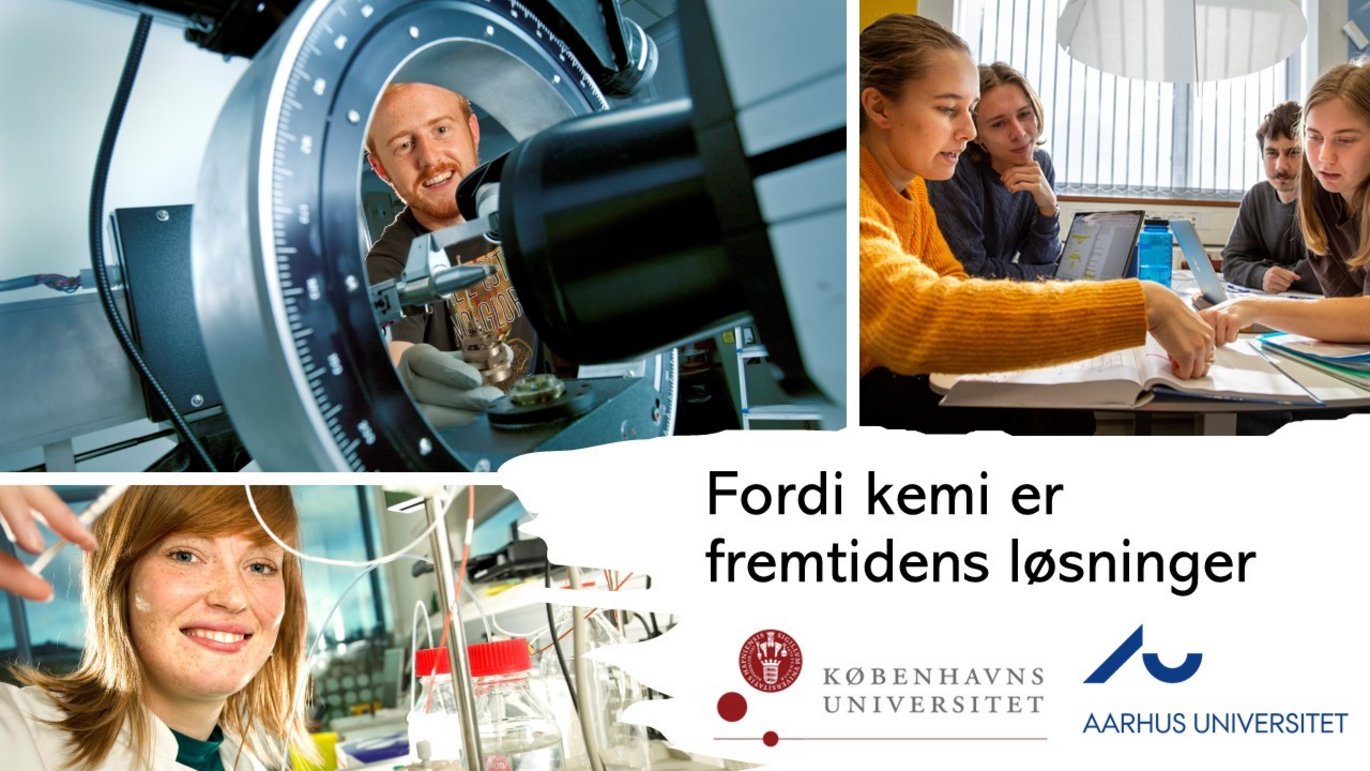AU and KU join forces to promote chemistry
A new collaboration between Aarhus University (AU) and the University of Copenhagen (KU) will convey chemistry’s important role in solving big societal challenges.

Chemistry is a significant cornerstone in the green transition and also one of the core sciences in a large number of Denmark’s big companies. Therefore, it is essential that we recruit more students to the chemistry degree programmes in the Danish universities as their competences are needed.
With a new project, supported by the Novo Nordisk Foundation with 5 million DKK, Aarhus University and the University of Copenhagen will develop new materials for teaching chemistry in the Danish upper secondary school. The teaching material will convey a number of subjects, with a focus on the core areas within the Danish universities and the Danish industries, and show how chemical knowledge is essential to solving current and future societal challenges.
The project aims to strengthen the understanding of the scope and the societal relevance of chemistry.
“To supply enough and qualified labour for the green transition and future drug development, we must graduate more chemists than we do now,” says Pernille Harris, Head of Department at the Department of Chemistry, University of Copenhagen.
She continues: “Therefore, we are thrilled that the Novo Nordisk Foundation supports this collaborative initiative between Aarhus University and the University of Copenhagen in developing teaching materials for the upper secondary schools. We hope that the project can attract more young people to the chemistry degree programmes. In Denmark, we have a long and proud tradition of chemistry research, which Morten Meldal’s Nobel Prize exemplifies greatly.”
Aarhus University is also very happy with the grant. “Chemistry is a core science, both now and in the future,” says Karl Anker Jørgensen, Acting Head of Department at the Department of Chemistry, Aarhus University. “With this project, we hope that more upper secondary school pupils discover the importance of chemistry and the many exciting possibilities that a chemistry degree provides. We are delighted to collaborate on this important task and look forward to involving both researchers and teachers in the development of new teaching materials.”
